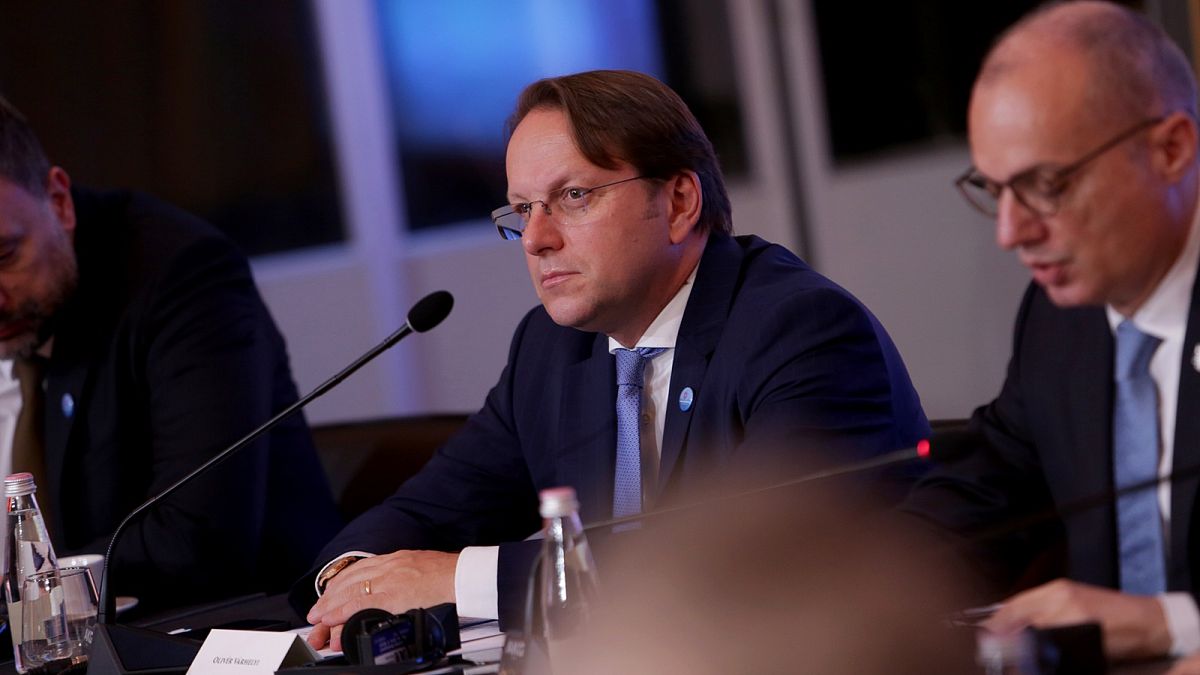The European Commission scrambled on Tuesday to explain the contradictory messages sent by their officials regarding the bloc's aid for the Palestinian territories in reaction to the unfolding Israel-Hamas war.
The focus was on Olivér Várhelyi, the European Commissioner in charge of enlargement and neighbourhood, who on Monday afternoon suddenly announced on social media that "all payments" to the Palestinians had been "immediately suspended" and that "all new budget proposals," including for 2023, had been "postponed until further notice."
"There can be no business as usual," he wrote on X, formerly Twitter.
The categorical statement was immediately picked up by the media and reported across the world. As the Commission did not immediately provide further details beyond the social media posts, the suspension was perceived as related to development funds but also humanitarian aid, which is channelled through UN agencies on the ground.
This triggered strong backlash from some member states, including France, Ireland, Spain and Luxembourg, who argued the cut-off would only exacerbate the already dire situation inside the Gaza Strip.
In a bid to quell the anger, Janez Lenarčič, the European Commissioner for crisis management, later went on X and clarified that "humanitarian aid to Palestinians in need will continue as long as needed." The message, which appeared to be designed to rebuke Várhelyi's early post, laid bare the infighting inside the executive.
It took the Commission nearly six hours after Várhelyi's initial social media post to publish an official press release explaining its decision to carry out an "urgent review" of the bloc's assistance to the Palestinian territories with the goal of ensuring that "no EU funding indirectly enables any terrorist organization to carry out attacks against Israel."
"As there were no payments foreseen, there will be no suspension of payments," the press release said, in what seemed to be a thinly-veiled reprimand of Várhelyi.
The Commission underlined the review would not affect the deployment of the €27.9 million allocated this year for humanitarian aid.
The PR fiasco caused consternation among journalists in Brussels, who spent several hours trying to figure out what the EU, as a major donor to Palestinians, intended to do in response to the Israel-Hamas war.
On Tuesday, the Commission was faced with a deluge of questions about the decision-making process and the chain of command that preceded Monday's announcement.
It was then revealed that Várhelyi had acted on his own initiative without the blessing of President Ursula von der Leyen or discussions with any other of his colleagues.
"The announcement which was made by Commissioner Várhelyi was not preceded by consultations with any member of the College, ok? That must be absolutely clear," said Eric Mamer, the Commission's chief spokesperson.
Following the publication on X, the heads of cabinet of all Commissioners gathered together to hash out a common policy, Mamer explained, which resulted in the decision to carry out an "urgent review" of the development assistance allocated in the past three years, worth €681 million.
"We are not going to suspend anything until we have carried out this review, including individual payments, including programmes," Mamer added.
"But we recognise, and this is the result of the meeting yesterday, that there is a need to have another look at the assistance for Palestine in general because the situation on the ground is evolving."
The spokesperson refused to say whether President von der Leyen had reprimanded Várhelyi for his unilateral actions but underlined there were no plans to restrict the Commissioner's access to X, a platform he has used in the past to express his unvarnished views.
"The President is in constant contact with her Commissioners. But I'm not going to provide details of a blow-by-blow account of the contacts between the President and individual members of the college," Mamer said.
"What we are focused on is not internal debates about who should have announced what at what point in time (and) following what procedure. It's on making sure that our reaction corresponds to the necessities on the ground."
Asked if the review had been prompted by new evidence suggesting EU funds might be reaching Hamas, which the bloc considers a terrorist organisation, Mamer denied such a scenario and instead spoke of a "general sentiment that particular prudence is needed in the current in the current circumstances."
The EU is the biggest donor of aid to Palestinians residing in the Gaza Strip, which is under the tight control of Hamas, and the West Bank, which is partially governed by the Palestinian Authority under President Mahmoud Abbas.
The majority of development funds go into "state-building" projects in the West Bank, including rule of law, healthcare, education and salaries of civil servants, while humanitarian aid goes to both sides.
